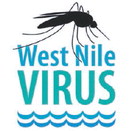First WNV-positive mosquitoes confirmed


OC VECTOR CONTROL
The Orange County Mosquito and Vector Control District (OCMVCD) has confirmed the first mosquito samples to test positive for West Nile virus (WNV) in 2021.
The positive mosquitoes were collected from two different locations in the City of Fullerton at the cross streets of Chapman and Ladera Vista as well as Woodcrest and Richman Avenue.
“West Nile virus positive mosquito samples indicate that the virus is active in Orange County and that there is an increased risk for residents to become infected with WNV through a mosquito bite,” said Amber Semrow, director of scientific services.
West Nile virus is spread to people by the bite of an infected mosquito. Mosquitoes become infected when they feed on infected birds. Currently no human cases of West Nile virus have been reported in Orange County.
OCMVCD staff will continue to conduct surveillance, inspections, and control measures for mosquitoes to prevent additional mosquito breeding in the area. OCMVCD will post WNV advisory signs alerting residents of high WNV activity in affected area.
“It is essential for residents to do their part and take charge of their yards,” said Lora Young, director of communications.
“The best way to protect yourself is using EPA-registered repellent, wearing long-sleeved clothing, and eliminating potential breeding sources around your property.”
To learn more about West Nile virus go to https://www.ocvector.org/westnile- virus.
Mosquito control is a shared responsibility. Orange County residents need to do their part to control mosquito breeding around their properties and prevent bites. Eliminating breeding sources is critical to preventing the spread of West Nile virus.
To prevent mosquito bites, take action and follow these tips:
• Dump and drain containers filled with water at least once a week.
• Clean and scrub bird baths and pet water bowls weekly.
• Dump water from potted plant saucers.
For more information on how to reduce the risk of WNV in LW, visit www.ocvector.org.





